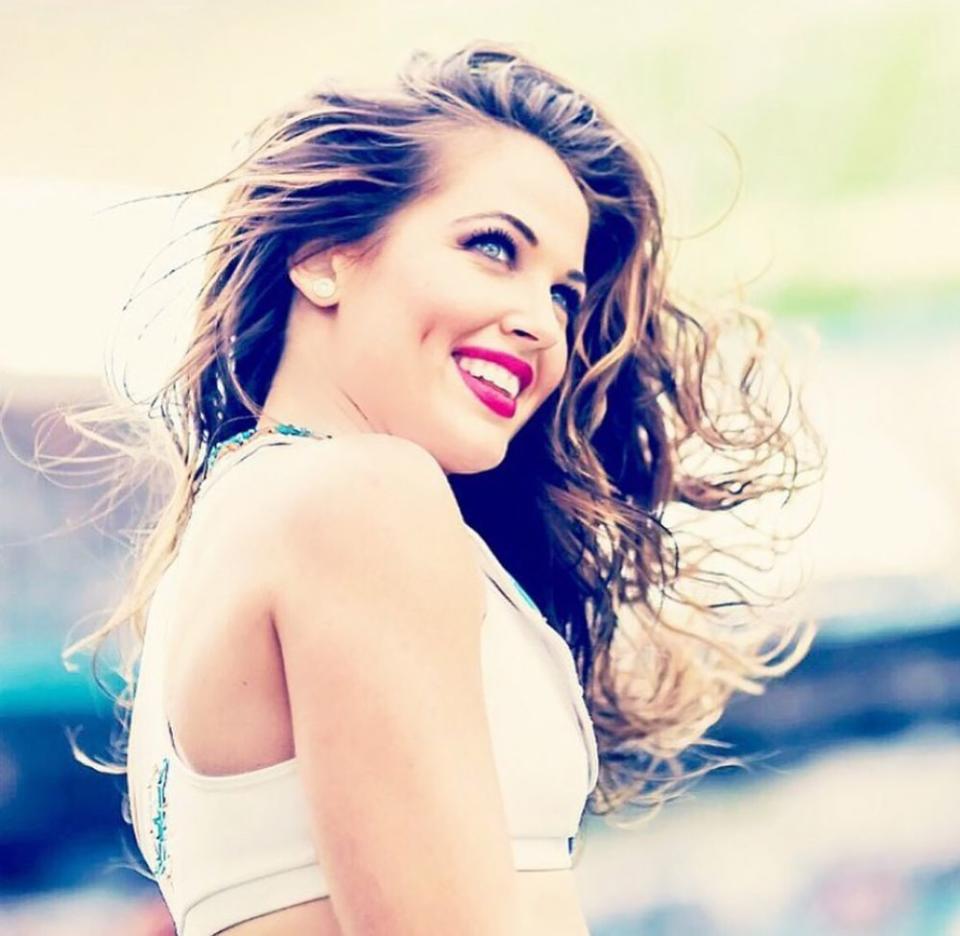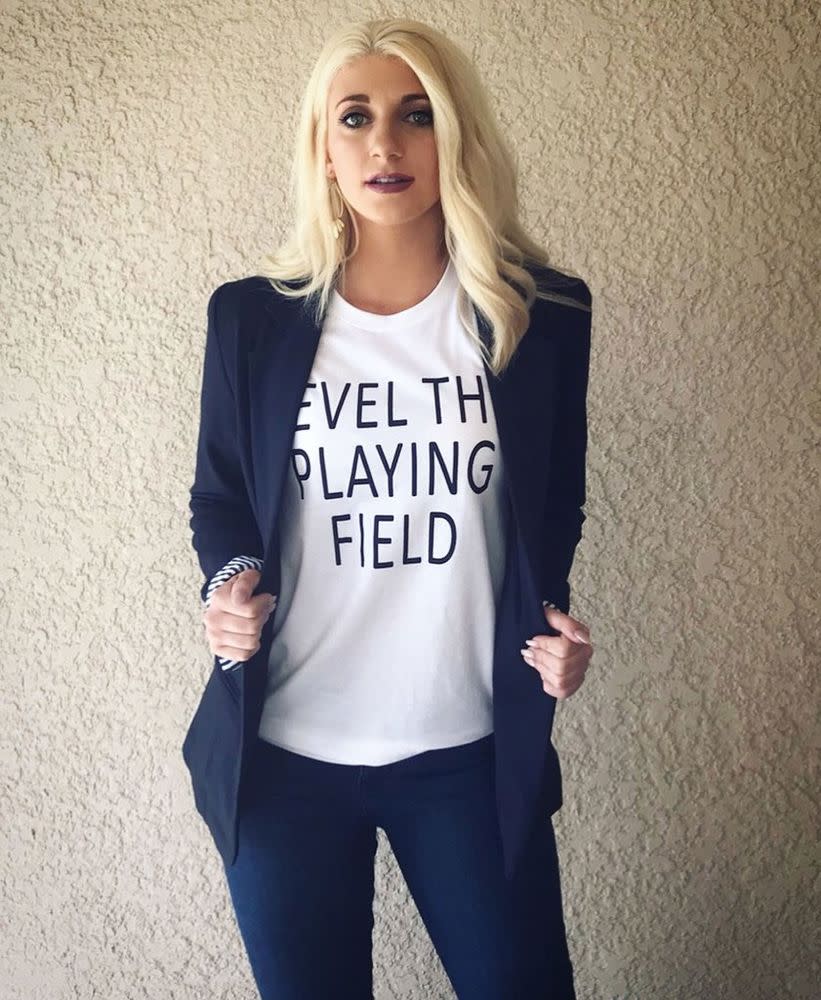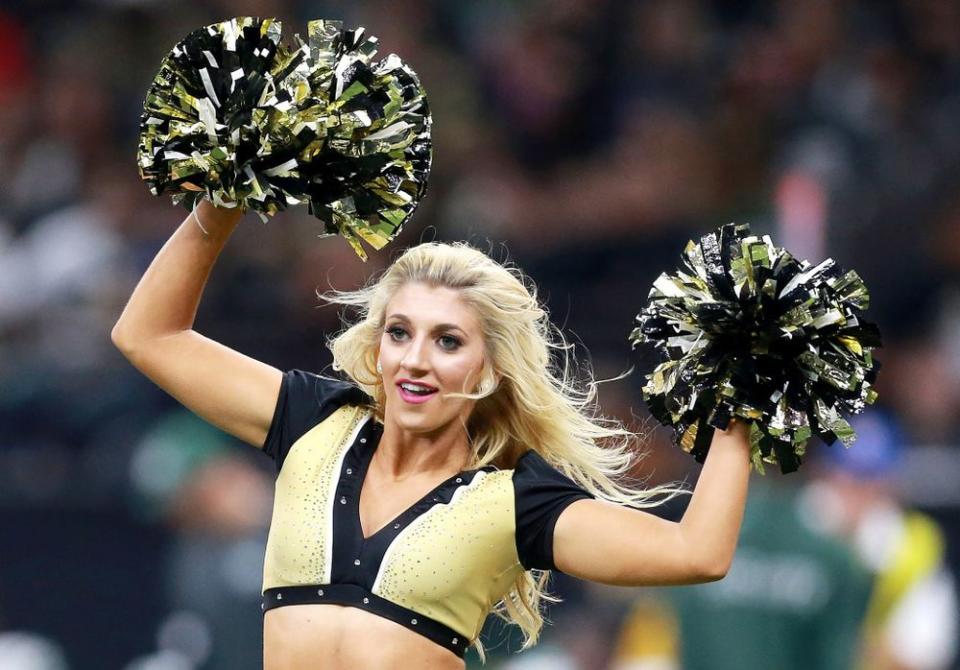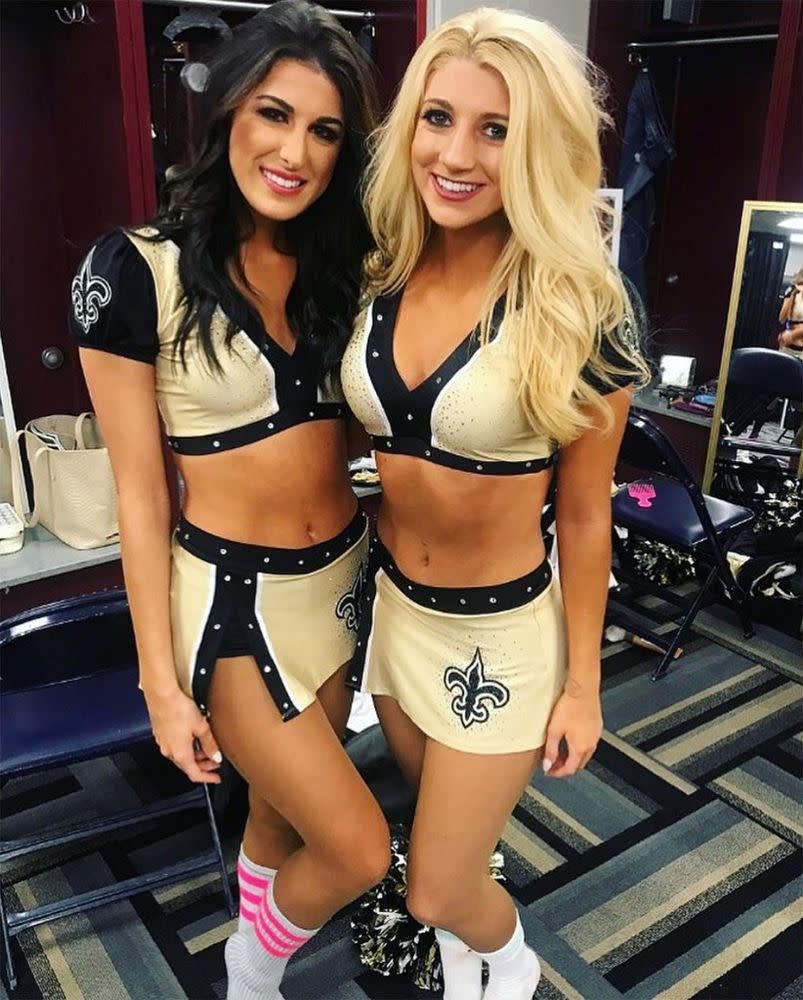Ex-NFL Cheerleader Quit After Concerns About Her Virginity; Inside the 'Messed Up’ Cheer Culture
Kristan Ann Ware has loved to dance since she was a young child. When at 23 she beat out hundreds of other women for a coveted spot as a cheerleader for the Miami Dolphins, she was dizzy with excitement after landing her dream job.
But Ware soon discovered there was much more to the position than the glamour of dancing before a stadium full of fans and posing in skimpy bikinis for calendars and fashion shows: She says an early training session involved learning how to deal with drunk fans, whom cheerleaders are required to mingle with at tailgate parties and other gatherings.
A woman pretending to be one such fan put her hand on [Ware’s] butt, moved it up and told Ware to say “oops your hand slipped” when dealing with groping men at promotional events, she says.
“We were told we always have to be smiling,” Ware tells PEOPLE, “and be so nice.”
Thanks to the Dolphins’ security team, who were with the cheerleaders while they interacted with fans, Ware says she received little unwanted physical contact — twice over her three seasons. But what drove her to quit a year ago, she says, was the treatment she received from team leaders, whom she alleges badgered her about her virginity and forbade her from expressing her Christian faith.

“My coaches sat down and said, ‘Let’s talk about your virginity,'” Ware says, “and I thought, ‘That isn’t right.’
Earlier this month, Ware filed a complaint with the Florida Commission on Human Relations against the NFL and Miami Dolphins alleging that she was discriminated against because of her religion and gender. Ware claims that she was treated differently than football players who kneel in prayer after a big play, openly pray together and talk about their faith.
A post shared by Kristan Ann (@kristan.ann) on Jun 10, 2017 at 5:18pm PDT
The Dolphins have not yet replied for PEOPLE’s request for comment.
Until recently, NFL cheerleaders have been fearful to speak up about the downsides of their work — that beneath the glitz are surprisingly arcane and restrictive rules, pay hovering around minimum wage, and sexual harassment in the hands of fans. Many are forced to sign non-disclosure agreements, attorney Sara Blackwell, who has been contacted by dozens of former and current NFL and NBA cheerleaders and is representing Ware, tells PEOPLE.
A post shared by Kristan Ann (@kristan.ann) on Apr 24, 2017 at 1:44pm PDT
“You are immediately told you are seen, not heard, told that if you complain about what’s happening, you are completely replaceable,” Ware says. “All they need is a pretty girl in a uniform.”
The emphasis on looking good in midriff-revealing costumes can take an emotional toll.
“For me, and many of my teammates, the real killer was body dysmorphia and eating disorders, and the depression and anxiety which stem from that,” Lyndsey Raucher, a college student who cheered for the New England Patriots from 2016 to 2017, recently told The New York Times. “I fear that I will never fully be the same.”
Ware says she was emboldened to to speak up after seeing former New Orleans Saints cheerleader Bailey Davis on television talking about how she was fired from the job with the team’s squad, the Saintsations, after she posted a photo of herself in a racy black lace one-piece outfit on her private Instagram account.

In a later interview with The New York Times‘ The Daily podcast, Davis describes how she was paid minimum wage her first year and $8.25 her second year.
Off the field, Davis and her fellow Saintsations couldn’t date, be in the same place as or speak to players, Davis previously told PEOPLE. One restrictive rule even forced cheerleaders to immediately exit a restaurant if a player walked in.
The women are not allowed to follow players on social media, and if a player follows them the cheerleaders must block them. New Orleans Saints players, meanwhile, don’t have rules forbidding them to talk to, message or follow a cheerleader on social media.
Communicating with a player, Davis says, is not only against the rules but grounds for immediate termination.
When asked about the justification for this, Davis told The Daily her bosses explained: “Players are predators, they will prey on you.”
“It’s such a double standard,” Kate Mayfield, 37, a former cheerleader for the Baltimore Ravens who is now a hedge fund consultant, recently told The New York Times. “They explain it to us like the rules are in place to keep us out of trouble, because the league is going to protect the player if something happens. Because the players are, if it comes down to it, more important, even though we’re also on the field. I don’t think I questioned it back then. I was 22.”
Davis filed a complaint with the Equal Employment Opportunity Commission, citing gender discrimination because social media rules are different for players and the cheerleaders.

In a statement to PEOPLE last month, Gregory Rouchell of Adams and Reese LLP, who serves as legal counsel for the Saints, said the team stands by their claim that they did not discriminate against Davis.
“The New Orleans Saints is an equal opportunity employer, and it denies that Ms. Davis was discriminated against because she is female,” the statement reads. “The Saints will defend these allegations in due course, and the Organization is confident that its policies and workplace rules will withstand legal scrutiny.”
Ware and Davis are both represented by Sara Blackwell, who tells PEOPLE that since Davis opened up about her experience over 60 current and former cheerleaders with the NFL and NBA have contacted her with their own stories of sexual harassment at the hands of fans, low pay and exploitive rules.
“Sportscasters have told me that this is the way it is,” Blackwell says. “I am hearing the same story from everybody. It’s really unbelievable.”
In a statement to PEOPLE, a spokesman for the league said of the cheerleaders’ claims: “The NFL and all NFL member clubs support fair employment practices. Everyone who works in the NFL, including cheerleaders, has the right to work in a positive and respectful environment that is free from any and all forms of harassment and discrimination and fully complies with state and federal laws. Our office will work with our clubs in sharing best practices and employment-related processes that will support club cheerleading squads within an appropriate and supportive workplace.”
In the meantime, cheerleaders have come to realize that groping and sexual harassment are part of the job, with teams profiting by sending cheerleaders into pregame tailgating and other gatherings where they are subjected to offensive sexual comments and unwanted touches by fans, according to interviews The New York Times did with dozens of current and former cheerleaders.
Oftentimes the cheerleaders must fend for themselves, sometimes visiting fans in pairs or small groups to feel safer, according to the Times.
“When you have on a push-up bra and a fringed skirt, it can sometimes, unfortunately, feel like it comes with the territory,” Labriah Lee Holt, a former cheerleader for the Tennessee Titans, told the newspaper. “I never experienced anything where someone on the professional staff or the team said something or made me feel that way. But you definitely experience that when you encounter people who have been drinking beer.”
A former cheerleader for the Redskins recalled to the Times a particularly uncomfortable assignment, when she and five teammates were sent to dance and hang out at a fan’s home, where several men were drinking and watching a football game.
“It’s not like somebody grabbed my boobs, and nobody told me, ‘Have sex with me right now.’ It’s a lot more nuanced,” said the former Redskins cheerleader. “It’s like every other abuse dynamic. You don’t feel like you have the liberty to say, I’d prefer not to do this. In turn, you’re treated poorly and are paid hardly anything and are ragged on in rehearsal for not wearing the right lipstick. The whole thing is so messed up.”
In an email statement to the Times, a spokesman for the Redskins said: “The safety and security of all of our employees, including our cheerleaders, is now and has always been a top priority for our organization. We are unaware of any reports of any promotional appearances that made Redskins cheerleaders uncomfortable. We take such reports very seriously and will continue to take all steps necessary to ensure the safety and security of our cheerleaders.”

Davis, meanwhile, told The Daily that her most negative experience was the requirement to sell 20 calendars before each game.
“Right after field rehearsal, we had to go around the drunk guys and sell these calendars,” she says. “I’d always come in with 10 or five left and after I got hollered at I’d get pulled before the third quarter.”
But Davis came up with a solution: Her father and boyfriend at the time brought extra cash to buy any of her unsold calendars so she could be on the field for the duration of the game.
“It got to the point,” she says, “where you are begging people to buy them.”

